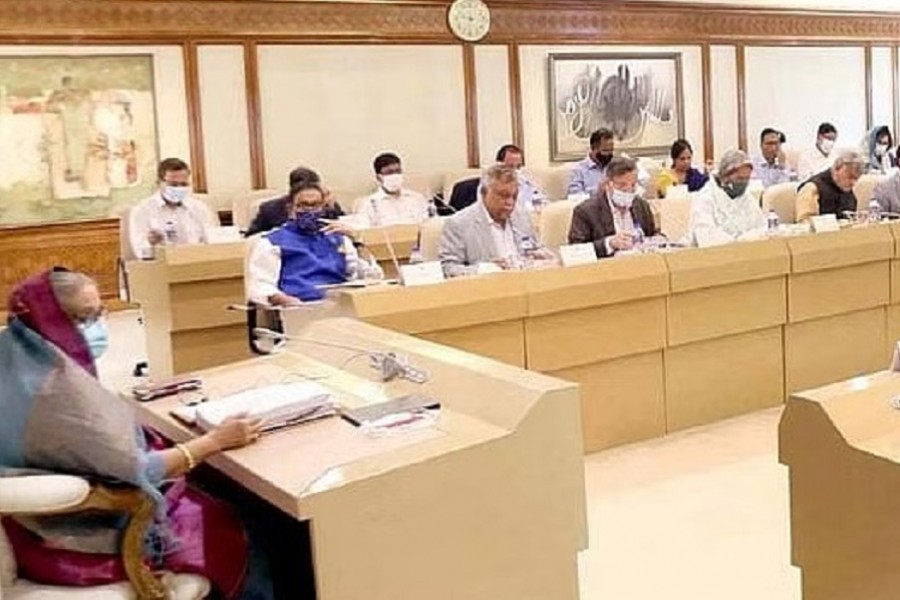Prime Minister Sheikh Hasina has directed all government agencies to clear their advanced income tax on imports and customs duties before placing import orders.
Cabinet Secretary Khandker Anwarul Islam disclosed the directives at a briefing after a regular meeting of the council of ministers, chaired by Hasina, on Monday.
Usually, government agencies invite importers to compete in a bidding process to get an import order.
Often, importers who win the bid ignore paying the advanced income tax on imports and customs duties, which is mandatory to clear bulk import materials from the port of entry, reports bdnews24.com.
As a result, in many cases, bureaucratic hassles arise when a ship docks at the port of entry to unload the goods. Even, in some cases, as Anwarul described, the ships are penalised up to $30,000 for not being able to pay the customs duty in time and receive the port declaration.
With this executive order, the cabinet secretary said, the prime minister essentially put the onus on the government agencies to make sure all the dues, as per Bangladesh’s taxation and customs code, are paid before the order is placed from suppliers abroad.
“The prime minister ordered all the government agencies to coordinate with me in order to hash out this recurring issue, so that the advanced income tax, customs duty and other related VATs can be cleared before any order is placed,” he said.
In emergency cases, however, Anwarul said the government agencies will still have the authority to provide an undertaking to the customs authorities that the former will pay the duties as soon as the fund for the imported materials will have been allocated.
“For example, we imported Tk 1.0 billion worth of some materials for Padma [Padma Bridge] on July 5, which was the first week of the new fiscal year, and funding was yet to be allocated.
“Before the import order was placed, we undertook the duties of Tk 200 million through a letter to the customs authorities, promising them to pay the duties as soon as the funds were allocated and requested them to release the materials based on the undertaking. They [customs authorities] cleared the materials,” he said.
“The key here is paying duties and relevant taxes. The agencies need to make sure the ships and importers do not have to pay any penalties for unauthorised unloading or for not clearing the materials.”
GOVERNMENT-SANCTIONED FOREIGN TOURS
Responding to a separate question on official foreign tours of government staff, Anwarul claimed the numbers of such tours have been reduced significantly after the Hasina administration put in place wide-ranging belt-tightening measures following the exchequer’s depleted foreign reserves.
“The relevant agencies have been strongly advised not to issue any funds for official foreign tours unless the government staffer receives necessary clearance from the Prime Minister’s Office.
“The clearance is necessary if the official would like to make the travel with their own funds. However, there are two exceptions to the rules; in cases where the official travels under a foreign aid scheme or in cases of procurement,” he said.
“For instance, you need operators for a brand-new large machinery. The operators require training. The training costs are usually included in the expenditure budget. That’s the exception.”
“Some top government officials, like the foreign secretary, the economic relations secretary, the education secretary and the agriculture secretary are members of many different international agencies. They are allowed to travel if the international agencies pay for the total travel costs under foreign aid schemes.”


